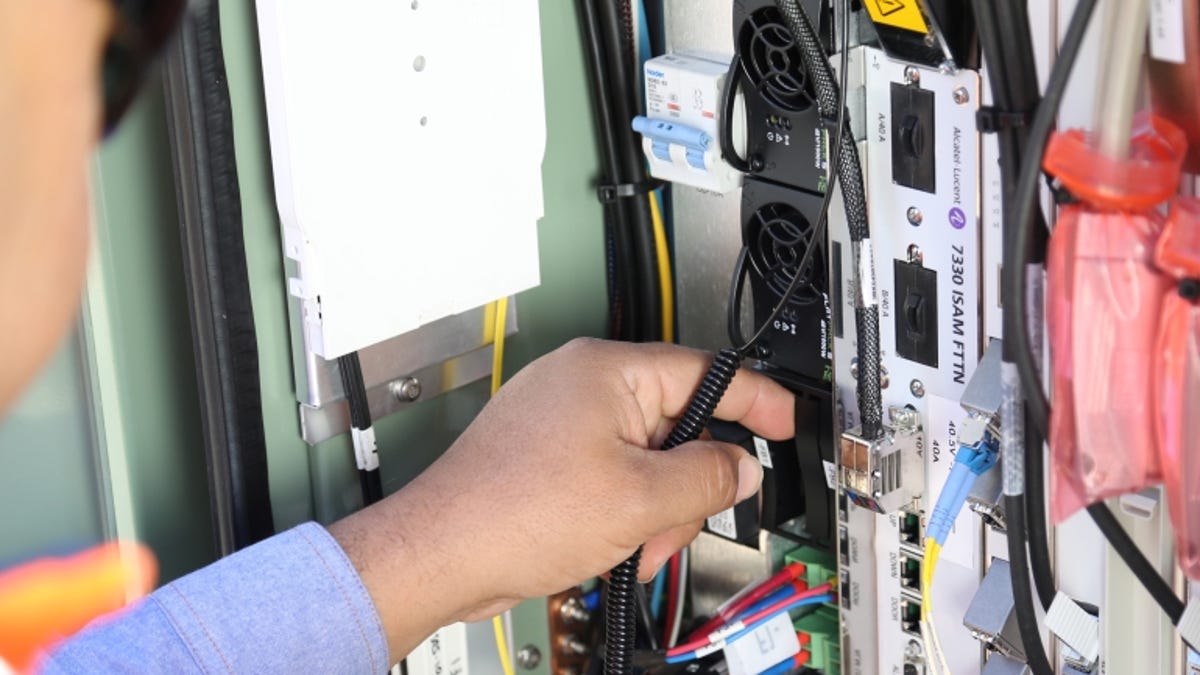Optus to refund 8,700 customers after overselling speeds
First Telstra, now Optus -- the competition watchdog is cracking down on ISPs for selling customers NBN speeds their connections just can't support.

The ACCC says the "technical limitations" of fibre to the node are to blame for inadequate speeds.
ISPs need to start delivering on the speeds they're promising.
That's the assessment of the ACCC, which Monday announced that Optus will refund more than 8,700 customers for failing to deliver the broadband speeds it sold to them.
From Sept. 1, 2015 until June 30, 2017, Optus sold NBN plans to customers on FTTN (fibre to the node) and FTTB (fibre to the building) connections, but the ACCC says "technical limitations" on these connections meant customers couldn't actually get the speeds they'd been sold.
Forty-eight percent of affected customers were on 100/40Mbps plans that couldn't reach those download speeds of 100Mbps; a further 21 percent of those customers couldn't even reach speeds of 50Mbps down/20Mbps up.
Optus isn't the first ISP to be hit by the ACCC for failing to deliver on NBN speeds. Last month, Telstra was forced to offer refunds to 42,000 customers for over-promising and under-delivering on FTTN plans.
Fibre to the node has been part of the NBN since 2014, when the federal government confirmed it was ditching a pure fibre-to-the-home rollout and moving to a multi-technology mix to deliver the nation's broadband network. This included a mix of FTTN and variations such as fibre to the basement and fibre to the curb, as well as HFC (hybrid fibre coaxial, the so-called pay TV network) and satellite for remote areas.
But these new technologies haven't been launched without problems (and criticism).
NBN recently announced it was pausing new HFC connections to address a backlog of complaints and issues with connections faults, while FTTN's mix of high-speed fibre and legacy copper networks have led many to point to the "technical limitations" on speed the ACCC is now highlighting.
But NBN says it's doing its part for transparency, providing ISPs with "estimated attainable line speed" data before ISPs connect customers to the network, as well as weekly reports on wholesale speeds available for every connection.
The focus is also on ISPs for how they advertise those speeds to customers. With complaints about NBN up 159 percent this year, the ACCC has released recommendations [PDF] for how ISPs should advertise speeds, including disclosures about real-world speeds achievable on a connection at peak times, not just theoretical speeds.
Following today's news Optus has apologised to customers, saying it "acknowledges that it did not have the appropriate procedures in place to confirm the speed of the NBN service at the time of purchase by affected customers.
"We have been working cooperatively with the ACCC to remediate affected customers for differences between their chosen speed plan and the speed obtained," an Optus spokesperson said. "Affected customers will be notified of their options by no later than 2 March."
Update, 2:43 p.m. AEDT: Added comment from NBN.
Virtual reality 101: CNET tells you everything you need to know about VR .
CNET Magazine: Check out a sample of the stories in CNET's newsstand edition.

